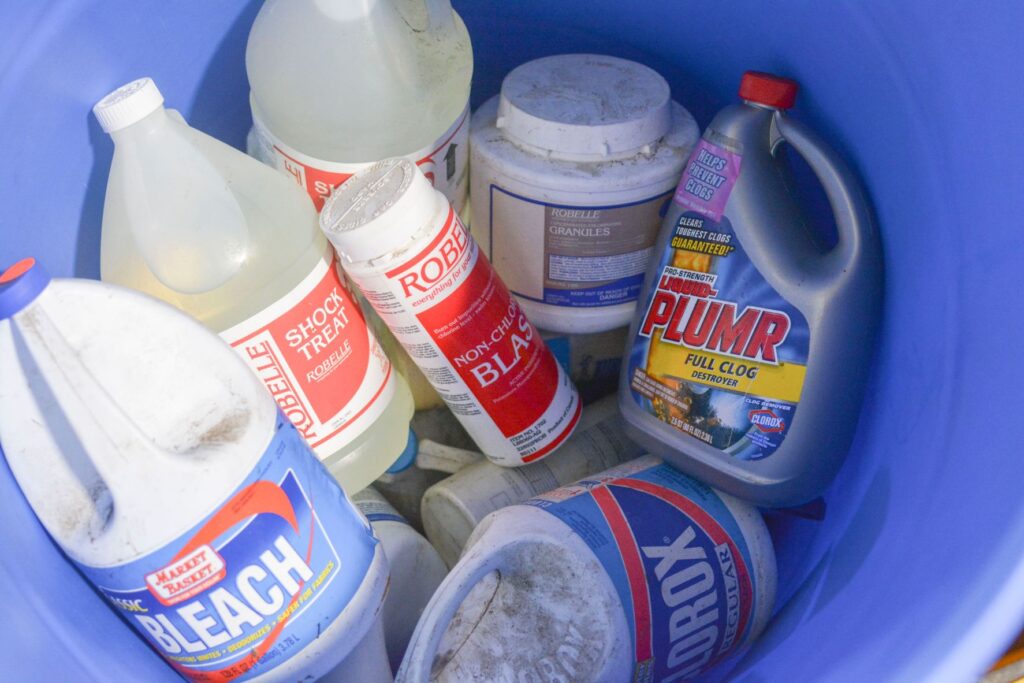Sometimes, all-purpose surface cleaners and Windex don’t cut it; you have to call in the big guns of cleaning. Many of these “heavy duty” cleaners come with a host of warnings, including required equipment for use, as well as warnings about skin exposure, eye exposure, properly ventilated areas—the list goes on. A large group of these hazardous household products are categorized as “corrosive cleaners,” or products with the primary job of dissolving things—and that comes with even more warnings, especially pertaining to storage and disposal.
Three Major Types of Corrosive Chemicals in Cleaning
As we talked about in this previous blog, Why Certain Cleaning Products are Hazardous, cleaning products generally contain three types of chemicals: surfactants, solvents, and alkalis/acids. While the first group represents products like soap, the other two can be corrosive and pose other hazards in “heavy duty” strengths.
- Strong Acids: Probably the best-known corrosive, the most dangerous acid easily accessible to homeowners is muriatic acid, a diluted form of hydrochloric acid. This yellow liquid requires special care even in weakened form since it can dissolve many kinds of substances, including exposed skin.
- Strong Alkalis: Lesser known is that strong bases can be equally corrosive; the most recognizable version is in drain cleaners such as sodium or potassium hydroxide (which can also include strong acids, depending on the brand). Depending on your pipes and sewers, it may even be recommended to NOT pour these down the drain for disposal.
- Solvents: These chemicals are often used to dissolve oils and grease, including products like denatured alcohol or acetone. These should be used in well-ventilated areas and are often flammable or even explosive. Sometimes you’ll find them combined with acids or alkalis, such as with carpet cleaner.
Handling, Storing and Disposing of Hazardous Cleaning Products
Start by always making sure to read the labels before use (and ideally before buying). They will give you a list of proper equipment to use, such as hand, eye, and breathing protection—including if you need to use a mask or in a well-ventilated space. Make sure to store them in the containers they came in (if those containers are no longer suitable, contact the manufacturer for instructions). When it comes to disposal, many of these cleaning products cannot be disposed of at home or in the garbage, since they pose a hazard when compacted or handled by personnel, and for treatment plants when poured down the drain.
Thankfully, disposal options are available to you, including NEDT Collection Centers! We accept many kinds of cleaning chemicals; see our full listing here. Make more of your trip to one of our locations by bringing in any other household hazardous waste (such as old eWaste like CRT monitors) when you drop off, or learn more about our pick-up options. Because household hazardous waste shouldn’t be difficult!



Leave a Reply